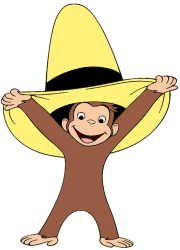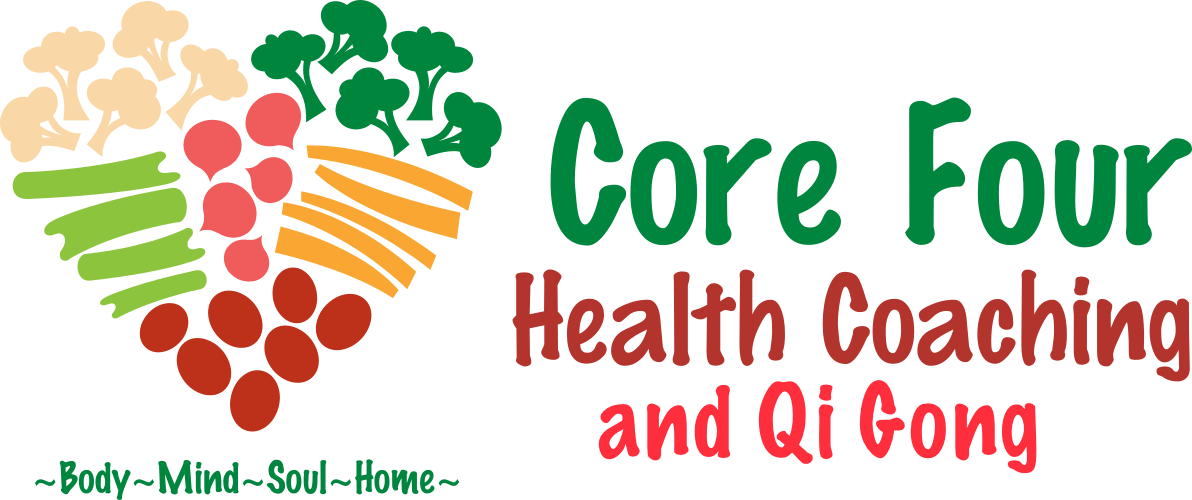
We can all agree that Curious George is one of the most beloved characters in children's literature. First published in 1941, the very popular books have been in continuous print since then. What we know and love from the books (and the PBS television animated series) is that the storylines always revolve around the mischief that George gets into because of his inquisitiveness. The only other recurring character in the books is the unnamed "Man With the Yellow Hat" who brought George home with him to the 'big city' after a trip to Africa. He is responsible for many of George's mishaps because he brings him on adventures and fortunately, he seems to always come to the rescue just in the nick of time. The moral of each and every story is George's curiosity is the cause of much peril, stress and tension. I love that mischievous monkey and I think we should all be more like him!
Why is curiosity viewed as something negative? How many times have parents said they are weary of their small children repeatedly asking "why"? We seem to be discouraged, starting at a young age, from asking questions and demanding answers. The word curiosity comes from the Latin "cura" meaning "care". I think that the strong desire to learn and know something is a form of caring. If you have a friend or family member who takes the time to really get to know how you are feeling, then you are on the receiving end of great care and consideration. This same diligence and curiosity can help you in so many ways in your life. Having a never-ending quest for knowledge has been linked with psychological, emotional, social and health benefits. Curiosity boosts our level of achievement, expands our empathy, strengthens our relationships, improves our healthcare treatment, helps our brains to release dopamine and other feel-good chemicals, lowers our anxiety and increases our happiness. There sure are a lot of benefits to being more like Curious George!
I recently read the book A Curious Mind: The Secret to a Bigger Life written by the famous television and movie writer and producer Brian Grazer. It is his personal account of the many "curiosity conversations", as he calls them, that he has had over the years. He says that without a lifetime of having asked the important questions, he would never have made Apollo 13, Splash, A Beautiful Mind, Friday Night Lights, Arrested Development or Empire. Brian says that curiosity is quite literally the key to all of his success and what has given energy, insight and happiness to everything he has done. He says in the book that "curiosity infuses everything with a sense of possibility." Think about your favorite radio or television talk show hosts. What do you like most about them? It is probably the fact that they can get answers to the questions that have been forever on your mind. The joke in Hollywood for years was that if you were lucky enough to be interviewed by Barbara Walters, you should prepare yourself because she was famous for making her subjects spill their secrets and cry while doing so. Barbara was known for her relentless and unyielding interview style. It served her as well with Fidel Castro as it did with Michael Jackson and Monica Lewinsky. You may be surprised that I am a huge fan of Howard Stern. The reason why? He is a talented interviewer and his curiosity in his guests' lives ensures that all of the important questions get asked and answered. After you have listened to one of his interviews, you walk away knowing much more about the person than you did 90 minutes earlier.
My own personal story revolves around curiosity. It was my need to get answers to my own health questions that drove me to go back to school to become a Certified Health Coach. I now spend a great deal of my time researching and getting answers to the health questions of my clients. Each day of my life is filled with learning new things, reading health books and asking questions relentlessly. Our mind is like a muscle which becomes stronger through continual exercise. Being curious will help make your mind stronger. I used to suffer from extreme brain fog... now that I am exercising my mind every day, my brain fatigue has been cured.
Am I telling you that you need to go back to school like me or get into trouble like Curious George? Of course not. What I am saying is that being curious will break you out of your regular routine. It will open up new worlds and possibilities, bring some excitement into your life, make your mind observant of new ideas, and make your brain more active instead of passive.
Start today by asking more questions! Instead of asking the usual "how was your day?" or "how are you doing?" with your loved ones, dig a little deeper and show how interested you are and how much you care. We need to channel our inner Barbara Walters or Bob Costas and start asking deeper questions, talking less and listening more carefully. Curiosity, at its core, is all about noticing and being drawn to things we find interesting. But we can really enhance our brains if we explore new things and work on making the unfamiliar more familiar.
The next time you grab a magazine or book off of a bookstore or library shelf, why not reach for one about a topic that you know nothing about? It does not have to be something you are already passionate about. The more curiosity you can come up with for something, the more likely you are to notice and learn about it, and thus the more interesting and meaningful it will become for you over time. If you make a vow to yourself to become more curious and to learn new things, you will not only increase your knowledge, you just may end up happier, healthier and with a richer and more passionate life!
